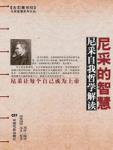Chapter 1 sequence
In the history of western philosophy, Nietzsche is the most unneglectable figure, and also one of the most controversial figures.Due to different viewpoints and positions, people have different understandings of his works.Not only that, but Nietzsche's thought is often misunderstood because it takes the form of a unique, powerful monologue full of metaphors, contradictions, and even madness.
So, how should we view Nietzsche and his thought?
First of all, from a positive point of view, Nietzsche is a maverick philosopher.He combines the profundity of philosophy, the romance of poetry, the shock of music, the delicacy of psychology and the breadth of linguistics, forming a class of his own.Although there are inevitable dross in his thought, the wealth of thought he left for future generations is extremely precious.
Nietzsche denounced rationality and Apollonian spirit, and praised sensibility and Dionysian spirit, so he is regarded as one of the founders of modern Western irrational thoughts and philosophy of life: He advocated a complete revaluation, criticism and subversion of modernity and all its values, And therefore is regarded as a pioneer by most postmodernists.People affected by it include: Freud, Heidegger, Foucault, Sartre, etc.; writers include: Zweig, Bernard Shaw, Gide, Hesse, Lu Xun...
Secondly, from the negative side: Some of Nietzsche’s thoughts need to be criticized. For example, Nietzsche’s strong aristocratic complex and over-emphasis on personal will lead to his overly radical theoretical tendency, mainly including:
It is undeniable that Nietzsche's "superhuman philosophy", as a theory of heroism, undoubtedly has its desirable side.Heroes are needed in almost every era, because in a special era where knowledge, wisdom and courage play a decisive role, a hero or outstanding person is often better than a thousand troops.However, the heroism reflected in the "superhuman philosophy" is extreme and narrow-minded.He believes that ordinary people are crude products and advocates that "higher people" rule the world.Just imagine, if war is waged against the common people as Nietzsche advocated, the world will be in chaos, and it will be difficult for heroes to become heroes.Nietzsche said: Man should live on top of a mountain.Would it not be absurd if "Superman" or "Higher Man" were the peak of the mountain of man, and the mountain should abandon the body on which it soars into the sky?
The "superhuman philosophy" led to Nietzsche's strong admiration of aristocratic politics, which determined Nietzsche's anti-democratic tendency.Nietzsche advocated the rule of the world by "higher men", hoping to establish "a huge new aristocratic society based on the most severe self-discipline, where there are powerful figures of philosophical thought and artistic talents. mark.” Such a claim is obviously against the tide of history.
This is most typically reflected in his attitude towards women.He said: "Men are trained to fight, and women should be trained to entertain warriors. All the rest are stupid." In "Thus Spoke Zarathustra", he said through the mouth of an old woman: "Do you go to women? Don't forget Your whip!" He despised women as inferior and weak.Such a view is obviously contrary to the contemporary concept of equality between men and women.
Of course, when dealing with Nietzsche, what we need is not to debate his right and wrong, gains and losses, but how to understand, explore, study his words and deeds, and his wisdom.
Therefore, the planning idea of this book abandons the clumsy practice of simply combining his works.We travel boldly and fearlessly in Nietzsche's thoughts, trace the footsteps of the great man in the past, capture the aura of his wisdom, organize the shining points of his life into a document, and collect the text into a book.Our "recklessness" has no intention of offending the great man, let alone blasphemy.In fact, the purpose of taking the essence and discarding the dross is to help readers understand his thoughts more easily.We are cautious in our words and deeds, and divide the book into four volumes: Volume 1, the warning of life; Volume 2, the perception of genius; Volume 3: Rational thinking; Volume 4: Crazy passion.
This book contains the most representative views and propositions in Nietzsche's thought, and contains many shocking warnings, such as "man is something that should be surpassed", "God is dead" and so on.
Read his book to know his person, understand his meaning but limit his words.We firmly believe that this book will play a decisive role in helping readers understand Nietzsche.

